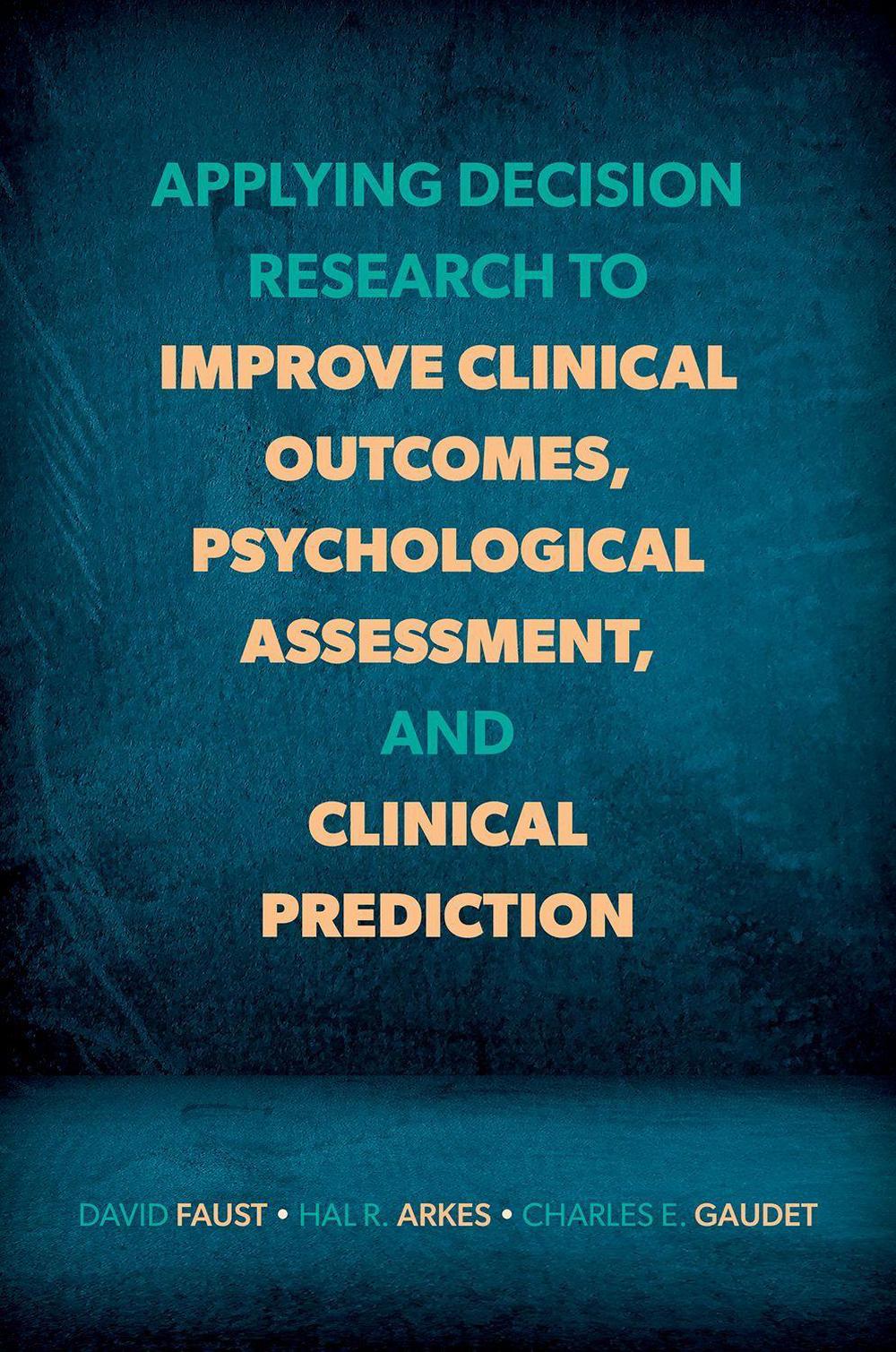
Applying Decision Research to Improve Clinical Outcomes, Psychological Assessment, and Clinical Prediction
$212.15
- Paperback
392 pages
- Release Date
24 April 2024
Summary
Sharpening Clinical Judgement: Decision Science for Mental Health
Mental health professionals constantly make critical predictions: risk assessment, treatment effectiveness, and diagnostic accuracy are paramount. Decision research offers powerful tools to refine these judgments, yet its principles remain underutilized in the field.
Sharpening Clinical Judgement bridges this gap, equipping students and practitioners with research-backed strategies to enhance diagnost…
Book Details
| ISBN-13: | 9780197694237 |
|---|---|
| ISBN-10: | 0197694233 |
| Author: | David Faust, Hal R. Arkes, Charles E. Gaudet |
| Publisher: | Oxford University Press Inc |
| Imprint: | Oxford University Press Inc |
| Format: | Paperback |
| Number of Pages: | 392 |
| Release Date: | 24 April 2024 |
| Weight: | 572g |
| Dimensions: | 235mm x 157mm x 24mm |
What They're Saying
Critics Review
“Faust, Arkes, and Gaudet have produced the best book on clinical decision-making in psychology ever written. It is that simple. They have taken what can be very obtuse sets of research and logic and applied the existing science to all aspects of clinical decision-making and prediction in a way that is eminently readable and synthesized remarkably well. Addressing current hot topics in the field as well as updating the key aspects of the actuarial vs. clinical decision methods and debates, I can assure you that reading this book will make you better at clinical diagnosis, prediction, and selection matters. We owe it to our clients, patients, and colleagues to read this book.”
– Cecil R. Reynolds, PhD, Distinguished Research Scholar, Texas A&M University
About The Author
David Faust
David Faust, PhD is Professor, Department of Psychology and Fellow of the Ryan Institute of Neuroscience, University of Rhode Island; Affiliate Professor, Warren Alpert Medical School of Brown University, Department of Psychiatry and Human Behavior.
Hal R. Arkes, PhD is Emeritus Professor of Psychology, Ohio State University; Associate, Harding Center for Risk Literacy.
Charles E. Gaudet, PhD is Fellow, Department of Physical Medicine and Rehabilitation, Harvard Medical School, Massachusetts General Hospital, Spaulding Rehabilitation Hospital.
Returns
This item is eligible for free returns within 30 days of delivery. See our returns policy for further details.




